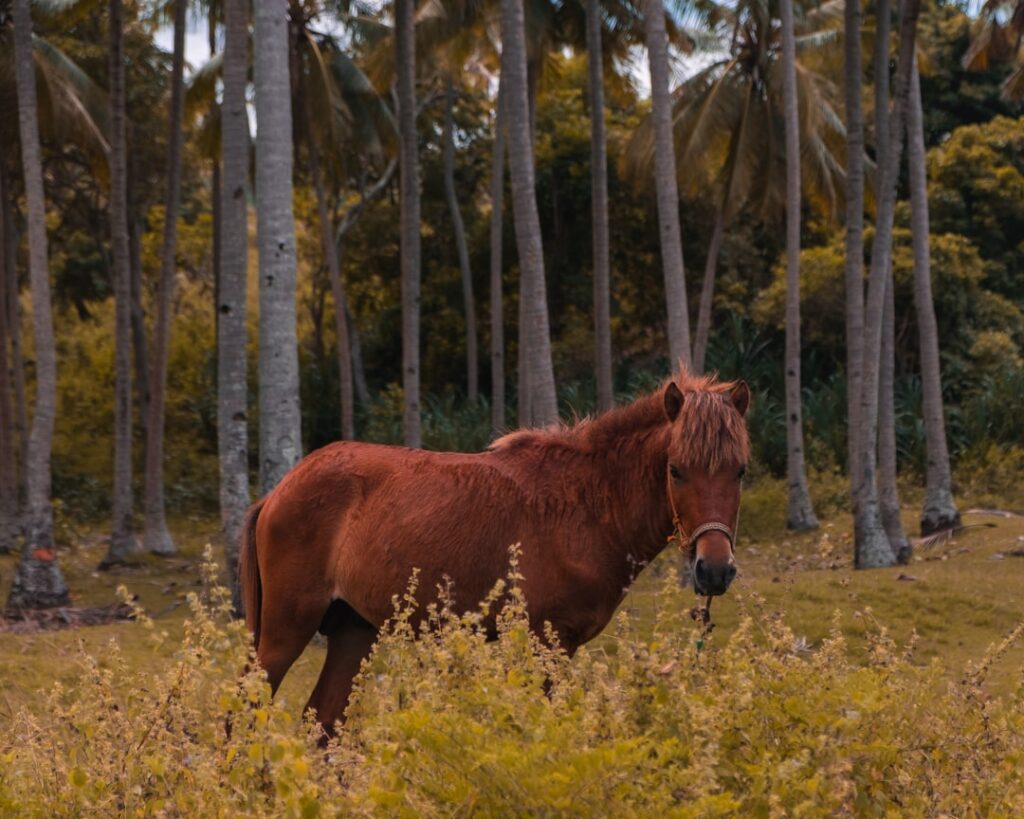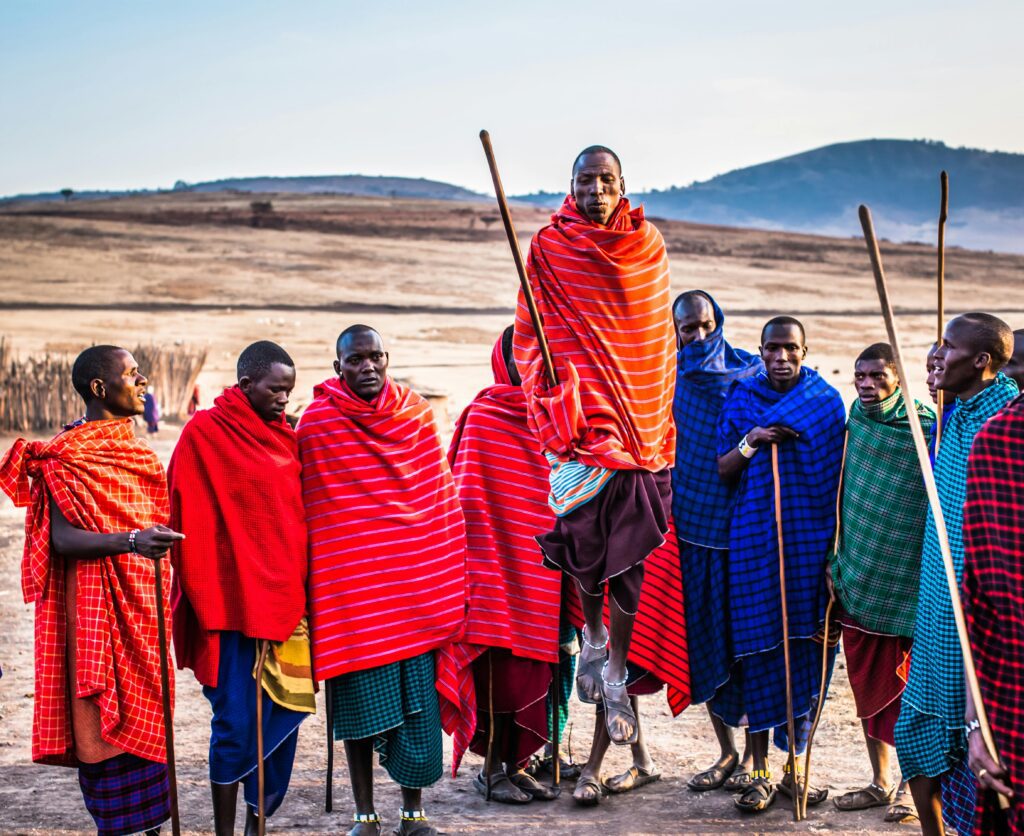The Ultimate Sumba, Indonesia Guide: Surf, Savanna & Stone Age Culture
Sumba, Indonesia isn’t just a destination—it’s a portal to another time. The air carries the scent of salt and sandalwood as you watch horsemen gallop across golden savannas toward megalithic tombs that predate history. Ancient traditions pulse through every village where ikat weavers create textiles that tell stories of spirits and ancestors. This is where Indonesia’s wild soul remains untamed.
Why Sumba, Indonesia Stands Out
Green-leafed trees, Sumba, Indonesia
- Historic Architecture: Ratenggaro Village’s thatched-roof houses and 4-meter-tall megalithic tombs (dating to 1500 BC) showcase living megalithic culture.
- Cultural Scene: Pasola Festival each February/March features hundreds of colorfully dressed warriors on horseback engaging in ritual spear battles to ensure good harvests.
- Local Specialties: Ikan Bakar Sumba (grilled fresh fish marinated in turmeric, garlic, and local spices) served on banana leaves at beachside warungs.
Pro Tip: Visit during the dry season (April-October) but specifically target May or September to avoid both the rainy season and peak tourist crowds—you’ll get perfect weather with empty beaches and better accommodation rates (20-30% cheaper than July/August).
Map of Sumba, Indonesia
Use these interactive maps to explore Sumba, Indonesia and plan your route:
📍 View Sumba, Indonesia on OpenStreetMap
🗺️ Open Sumba, Indonesia in Google Maps
Planning Your Trip: Practical Essentials
Getting There and Around
- By Air: Fly into Tambolaka Airport (TMC) or Waingapu Airport (WGP) via Bali on Wings Air or Garuda Indonesia. Airport transfers cost 300,000-500,000 IDR ($20-35) to main hotels. Book flights at Skyscanner for best deals.
- By Train: No train service available on Sumba—island is accessed only by air or ferry from Flores/Sumbawa.
- By Car: Rent 4×4 vehicles (essential for rough roads) from local agencies like Sumba Adventure for 600,000-800,000 IDR ($40-55)/day including driver. Compare car rentals at RentalCars.com.
- Local Transport: Ojek (motorcycle taxis) cost 20,000-50,000 IDR ($1.50-3.50) for short trips; private drivers average 800,000 IDR ($55)/day.
Best Time to Visit
Sumba’s tropical climate features distinct wet (November-March) and dry (April-October) seasons, with the dry months offering optimal conditions for exploring beaches and villages.
| Season | Weather | Highlights |
|---|---|---|
| Dry (Apr–Oct) | 27-32°C, low humidity, minimal rain | Perfect beach weather, best surfing conditions, cultural festivals, moderate crowds |
| Wet (Nov–Mar) | 24-29°C, high humidity, daily showers | Lush green landscapes, few tourists, lower prices, some road access issues |
| Shoulder (Apr/Oct) | 28-31°C, occasional brief showers | Ideal balance of good weather, empty beaches, and 30% lower accommodation rates |
Budgeting for Sumba, Indonesia
Starry sky during nighttime, Sumba, Indonesia
| Category | Budget | Mid-range | Luxury |
|---|---|---|---|
| Accommodation | 150,000-300,000 IDR ($10-20) homestays | 600,000-1,200,000 IDR ($40-80) boutique hotels | 2,500,000+ IDR ($165+) luxury resorts |
| Meals | 15,000-30,000 IDR ($1-2) street food | 50,000-100,000 IDR ($3.50-7) local restaurants | 200,000+ IDR ($13+) fine dining |
| Transport | 20,000 IDR ($1.50) ojeks | 800,000 IDR ($55)/day driver | 1,500,000 IDR ($100)/day private 4×4 |
| Activities | Free beach visits, village donations | 150,000 IDR ($10) waterfall entries | 500,000 IDR ($35) guided cultural tours |
| Daily Total | 300,000 IDR ($20) | 1,500,000 IDR ($100) | 4,000,000+ IDR ($265+) |
Top Attractions and Must-See Sights
| Attraction | Description | Hours | Entry Fee |
|---|---|---|---|
| Weekuri Lake | Turquoise saltwater lagoon with crystal-clear waters perfect for swimming and photography | Sunrise-Sunset | 10,000 IDR ($0.70) |
| Ratenggaro Village | Traditional village with towering megalithic tombs and spectacular ocean views | 8 AM-5 PM | 20,000 IDR ($1.50) + donation |
| Nihiwatu Beach | World-class surf break and stunning 2.5km white sand beach (now home to luxury resort) | 24/7 (public access) | Free (public areas) |
| Lapopu Waterfall | 40-meter waterfall cascading into refreshing natural pools surrounded by jungle | 7 AM-4 PM | 15,000 IDR ($1) |
3-Day Itinerary: Sumba, Indonesia’s Highlights & Hidden Gems
Day 1: West Sumba’s Cultural Heart
- Morning: 7 AM departure to Ratenggaro Village (2-hour drive from Tambolaka). Explore megalithic tombs and traditional houses with local guide (100,000 IDR/$7 tip recommended).
- Afternoon: 12 PM lunch at Warung Mbak Yetti near Weekuri Lake featuring fresh grilled fish (35,000 IDR/$2.50). Swim at Weekuri Lake followed by visit to nearby Mandorak Beach.
- Evening: 6 PM sunset at Nihiwatu Beach (public access area) followed by dinner at Warung Mama Mia in Waitabula (try their ayam bakar – 45,000 IDR/$3).
Day 2: Waterfalls and Weaving
- Morning: 6:30 AM start to Lapopu Waterfall (50,000 IDR/$3.50 entry including local guide). Swim in natural pools and hike to upper falls.
- Afternoon: Visit Prailiang Village weaving center (free entry, weavers work 10 AM-3 PM) to see traditional ikat production. Lunch at Warung Sari Rasa (beef rendang – 40,000 IDR/$2.50).
- Evening: Return to accommodation for relaxation. Dinner at your hotel or local warung – try sop ikan (fish soup) for 30,000 IDR ($2).
Day 3: Coastal Exploration
- Morning: Hire boat from Wanokaka Beach (150,000 IDR/$10 per person) to visit Marosi Beach’s dramatic cliffs and empty white sands.
- Afternoon: Explore Puru Kambera savanna landscape with local guide (100,000 IDR/$7). Lunch picnic with local provisions from market.
- Evening: Final sunset at Watu Malandong rock formation. Farewell dinner at Rumah Makan Sari Laut in Waikabubak (mixed seafood grill – 75,000 IDR/$5).
Cultural Insights & Etiquette
- Language: Indonesian (Bahasa Indonesia) main language; basic phrases: “Terima kasih” (thank you), “Selamat pagi” (good morning)
- Customs: Always ask permission before photographing people/villages; remove shoes before entering homes; use right hand for giving/receiving
- Tipping: Not expected but appreciated – 10-20,000 IDR ($0.70-1.50) for small services, 50-100,000 IDR ($3.50-7) for guides
- Dress Code: Modest clothing in villages (cover shoulders/knees); beachwear only at beaches; smart casual for nicer restaurants
- Business Hours: Shops 8 AM-5 PM, restaurants 7 AM-9 PM, many places close Sunday; major holidays see complete closures
Where to Eat: Sumba, Indonesia’s Best Bites
Sumba’s cuisine features fresh seafood, organic vegetables, and traditional spices with strong Melanesian influences. Dining is casual with most meals at simple warungs (family-run eateries) featuring grilled meats and rice.
Must-Try Local Specialties
- Ikan Bakar Sumba: Whole fish grilled with turmeric and spices; best at Warung Pantai Weekuri
- Ayam Taliwang: Spicy grilled chicken with chili paste; try at Rumah Makan Sari Rasa in Waikabubak
- Jagung Bose: Traditional corn and bean stew; authentic versions at village homestays
Restaurant Recommendations by Budget
| Type | Restaurant | Specialty | Price Range |
|---|---|---|---|
| Budget | Warung Mbak Yetti (Near Weekuri) | Fresh grilled fish and local vegetables | 25,000-50,000 IDR ($1.50-3.50) |
| Mid-range | Rumah Makan Sari Laut (Waikabubak) | Seafood platters and Indonesian classics | 60,000-120,000 IDR ($4-8) |
| Fine dining | Nihiwatu Resort Restaurant (Nihiwatu Beach) | International cuisine with local ingredients | 250,000+ IDR ($16+) |
Where to Stay
Accommodation ranges from basic homestays to luxury eco-resorts, with best concentrations in West Sumba around Tambolaka and Waikabubak. Book 3-6 months ahead for peak season. Compare prices and book at Booking.com or Airbnb for apartments.
Best Neighborhoods for Accommodation
- Tambolaka Area: Airport proximity, good restaurant selection, best for first/last nights; limited beach access
- Waikabubak: Cultural heartland, traditional markets, central location; less scenic than coastal areas
- South Coast: Beachfront properties, stunning ocean views, remote feeling; limited amenities and dining
People sitting on brown wooden bench under green palm tree during daytime, Sumba, Indonesia
FAQs: Your Sumba, Indonesia Questions Answered
1. Is Sumba, Indonesia safe at night?
Very safe—violent crime is rare. Exercise normal precautions: avoid isolated areas after dark, secure valuables, and use registered drivers. Road safety is the main concern due to poor lighting and road conditions.
2. What currency is used and are credit cards accepted?
Indonesian Rupiah (IDR) is the currency. Bring ample cash—ATMs are scarce outside main towns, and credit cards are only accepted at high-end resorts. Exchange money in Bali before arriving.
3. How do I get from the airport to the city center?
Tambolaka Airport to Waikabubak (main town) takes 1.5 hours by pre-booked car (300,000 IDR/$20). No regular taxis—arrange through accommodation or local drivers. Book airport transfers at GetYourGuide for convenience.
4. Do I need to speak the local language?
Basic English is understood in tourist areas, but learning a few Indonesian phrases enhances your experience. “Terima kasih” (thank you) and “Berapa harganya?” (how much?) are particularly useful.
5. What’s the appropriate dress code?
Modest clothing covering shoulders and knees in villages and towns. Beachwear is acceptable only at beaches. Bring light layers for cool evenings and rain protection during wet season.
Final Thoughts: Sumba, Indonesia Awaits
Sumba offers what few places still can: genuine cultural immersion in spectacular natural settings without mass tourism. From watching spear-wielding horsemen gallop across savannas to swimming in turquoise lagoons untouched by development, this island delivers experiences that feel both ancient and exclusive. Come for the empty beaches, stay for the profound cultural connections, and leave with memories of an Indonesia that time forgot. Proper planning is essential—this isn’t a destination for spontaneous travel—but those who make the effort will discover one of Southeast Asia’s last true frontiers.
Keywords
Sumba, Indonesia travel guide, Sumba, Indonesia attractions, things to do in Sumba, Indonesia, Sumba, Indonesia itinerary, Sumba, Indonesia restaurants, Sumba, Indonesia hotels, visit Sumba, Indonesia, Sumba, Indonesia tourism, Sumba, Indonesia vacation, Sumba, Indonesia trip planning






